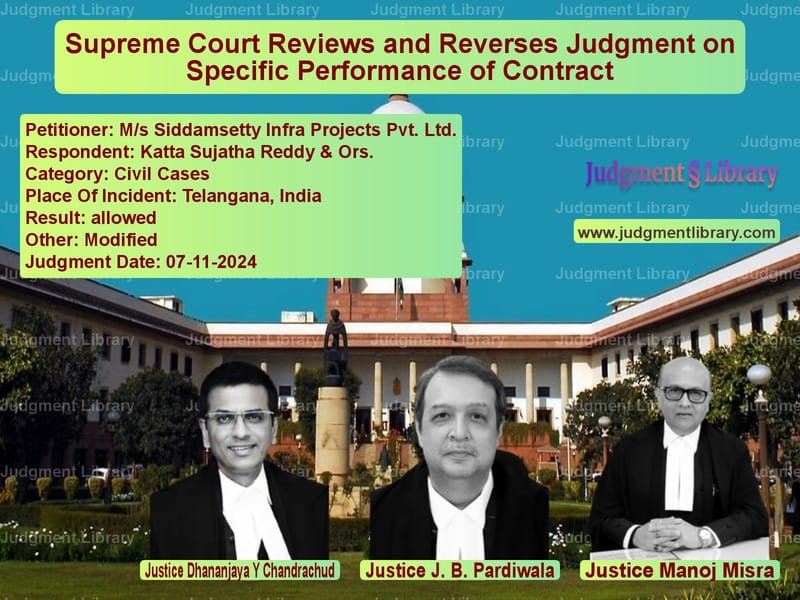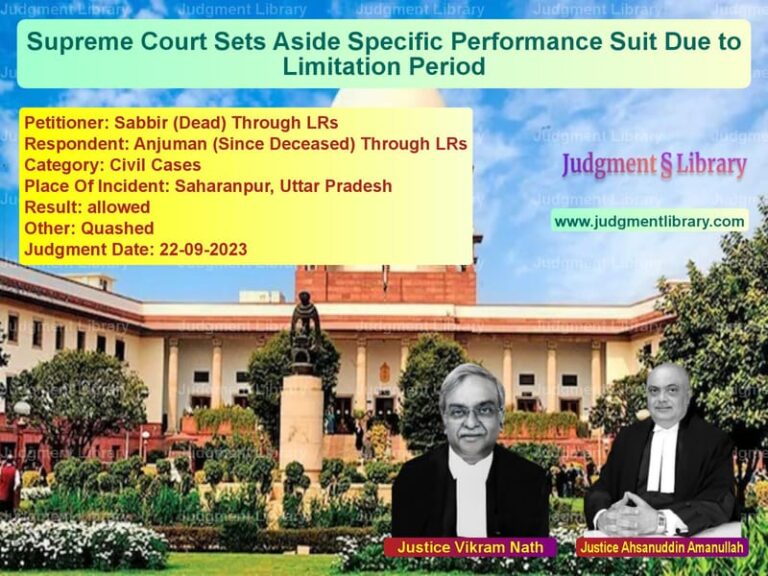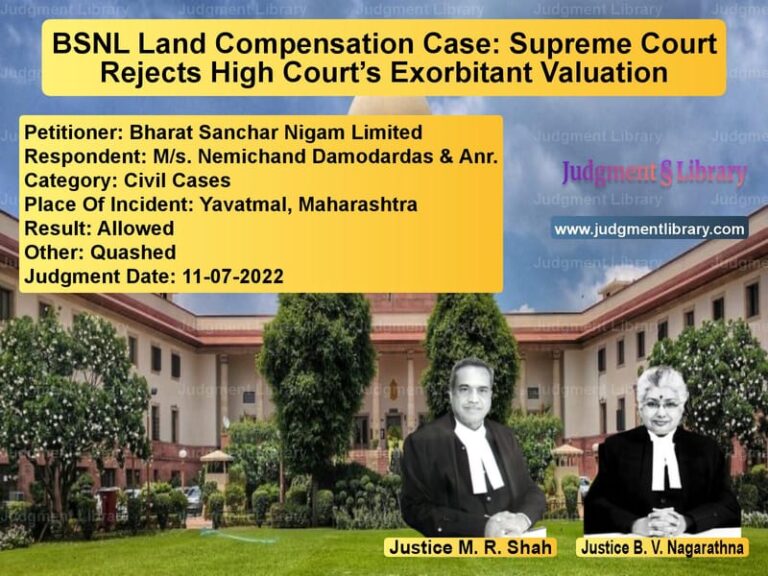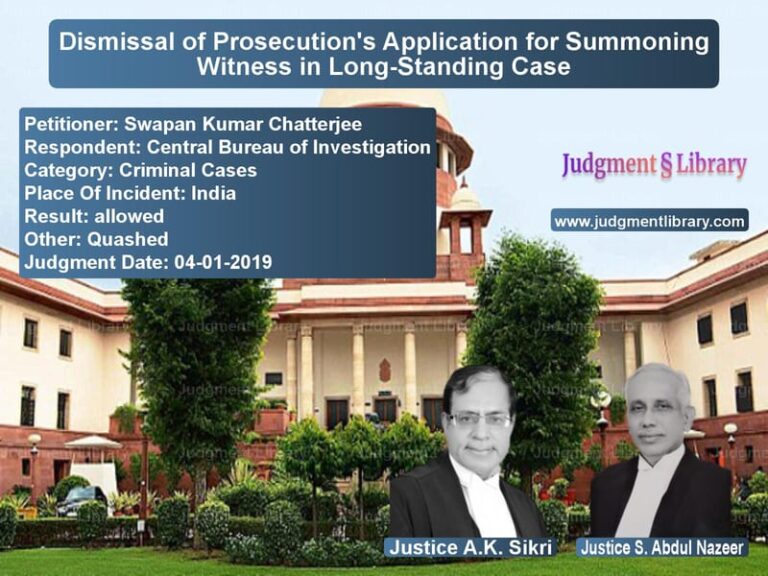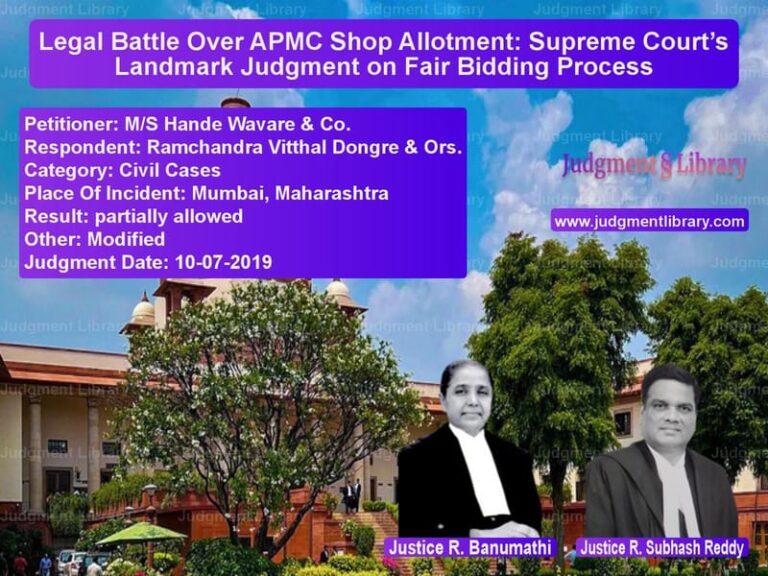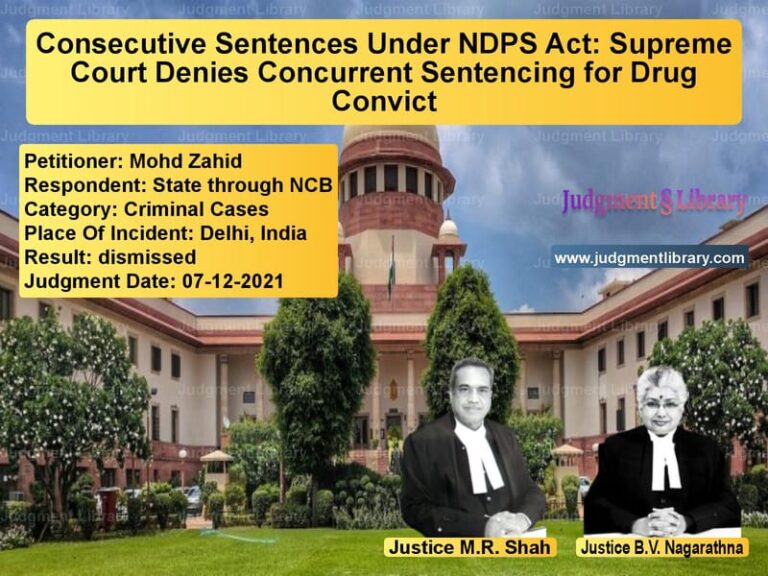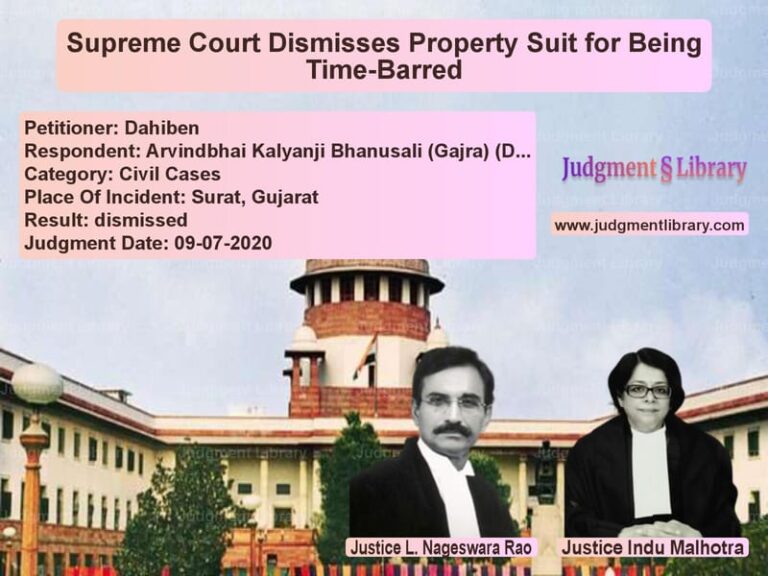Supreme Court Reviews and Reverses Judgment on Specific Performance of Contract
The Supreme Court of India recently ruled on a significant case concerning the specific performance of a contract in M/s Siddamsetty Infra Projects Pvt. Ltd. vs. Katta Sujatha Reddy & Ors. This case highlights key legal principles surrounding the execution of agreements for the sale of immovable property, the doctrine of lis pendens, and the criteria for granting specific performance.
Background of the Case
The dispute arose when the petitioner, M/s Siddamsetty Infra Projects Pvt. Ltd., entered into an agreement to purchase land but later faced legal challenges over the execution of the sale deed. The agreement involved multiple transactions, beginning with an original sale agreement dated March 19, 1994, between the landowners (original owners) and certain vendors. Subsequently, the vendors entered into a fresh agreement on March 26, 1997, with the petitioner, for the sale of a portion of the land.
The petitioner alleged that despite fulfilling most of the financial obligations under the agreement, the respondents (vendors) failed to execute the sale deed. The dispute led to a legal battle spanning multiple courts, culminating in a Supreme Court judgment on August 25, 2022, which denied specific performance to the petitioner.
Key Legal Issues
- Whether the suit for specific performance was barred by limitation.
- Whether time was of the essence in the contract.
- Whether the petitioner demonstrated readiness and willingness to perform the contract.
- The applicability of the doctrine of lis pendens.
Arguments of the Petitioner
The petitioner advanced the following arguments:
- The respondents failed to provide the necessary certificates and permissions required to complete the transaction, as stipulated in the agreement.
- The payment of 90% of the sale consideration demonstrated the petitioner’s commitment to fulfilling the contract.
- The suit was filed within the permissible period as per the Limitation Act, and the High Court had correctly applied the second part of Article 54, which calculates limitation from the date of refusal to perform.
- The respondents had accepted substantial payments and benefited from the agreement, making it inequitable to deny specific performance.
Arguments of the Respondents
The respondents countered with the following claims:
- The petitioner failed to pay the full balance consideration within the stipulated three-month period, thereby breaching an essential condition of the contract.
- The petitioner’s legal notices were ante-dated to circumvent the limitation period.
- The respondents had complied with their obligations and had been prepared to execute the sale deed, but the petitioner did not act promptly.
- Due to the petitioner’s delay, the suit was time-barred and should be dismissed.
Supreme Court’s Observations
The Supreme Court engaged in a thorough review of the contractual provisions and prior judgments, making several key observations:
1. Interpretation of the Time Clause
The Court noted that Clause 3 of the agreement specified a three-month period for payment and documentation. However, it identified an apparent error in the previous judgment, which had overlooked the consequences of the respondents’ failure to provide the necessary documents.
2. Limitation and Time of Essence
The Court ruled that the previous judgment erred in interpreting time as being of the essence based on an incorrect understanding of the contractual terms. It held that since the agreement lacked an explicit cancellation clause for non-payment, limitation should be governed by the second part of Article 54 of the Limitation Act, making the suit timely.
3. Readiness and Willingness to Perform
The Court emphasized that the petitioner had paid 90% of the sale consideration and had taken steps to complete the transaction. It ruled that the petitioner demonstrated bona fide intent to perform, contrary to the earlier ruling.
4. Doctrine of Lis Pendens
The respondents argued that the suit property had been alienated after the judgment of August 25, 2022. However, the Court clarified that lis pendens applies from the date of institution of the review petition, making any subsequent transfers subject to the outcome of the litigation.
Final Judgment
Based on these findings, the Supreme Court:
- Reversed its previous ruling denying specific performance.
- Restored the High Court’s decree granting specific performance in proportion to the amount paid.
- Declared that any sale of the property made after the institution of the review petition is subject to the outcome of the case.
- Directed the execution of the sale deed in favor of the petitioner.
Impact of the Judgment
This ruling has significant implications for contract enforcement in India:
- It reinforces that time is not always of the essence in immovable property contracts unless explicitly stated.
- It clarifies the application of the Limitation Act in cases where no fixed date for performance is specified.
- It upholds the doctrine of lis pendens to prevent parties from defeating ongoing litigation by alienating property.
- It emphasizes that substantial payment toward consideration is strong evidence of readiness and willingness to perform.
By allowing the review petition and reversing its earlier decision, the Supreme Court has reinforced the principles of fairness and contractual integrity, ensuring that parties who act in good faith are not unfairly penalized.
Petitioner Name: M/s Siddamsetty Infra Projects Pvt. Ltd..Respondent Name: Katta Sujatha Reddy & Ors..Judgment By: Justice Dhananjaya Y Chandrachud, Justice J. B. Pardiwala, Justice Manoj Misra.Place Of Incident: Telangana, India.Judgment Date: 07-11-2024.
Don’t miss out on the full details! Download the complete judgment in PDF format below and gain valuable insights instantly!
Download Judgment: ms-siddamsetty-infr-vs-katta-sujatha-reddy-supreme-court-of-india-judgment-dated-07-11-2024.pdf
Directly Download Judgment: Directly download this Judgment
See all petitions in Specific Performance
See all petitions in Property Disputes
See all petitions in Contract Disputes
See all petitions in Landlord-Tenant Disputes
See all petitions in Damages and Compensation
See all petitions in Judgment by Dhananjaya Y Chandrachud
See all petitions in Judgment by J.B. Pardiwala
See all petitions in Judgment by Manoj Misra
See all petitions in allowed
See all petitions in Modified
See all petitions in supreme court of India judgments November 2024
See all petitions in 2024 judgments
See all posts in Civil Cases Category
See all allowed petitions in Civil Cases Category
See all Dismissed petitions in Civil Cases Category
See all partially allowed petitions in Civil Cases Category

